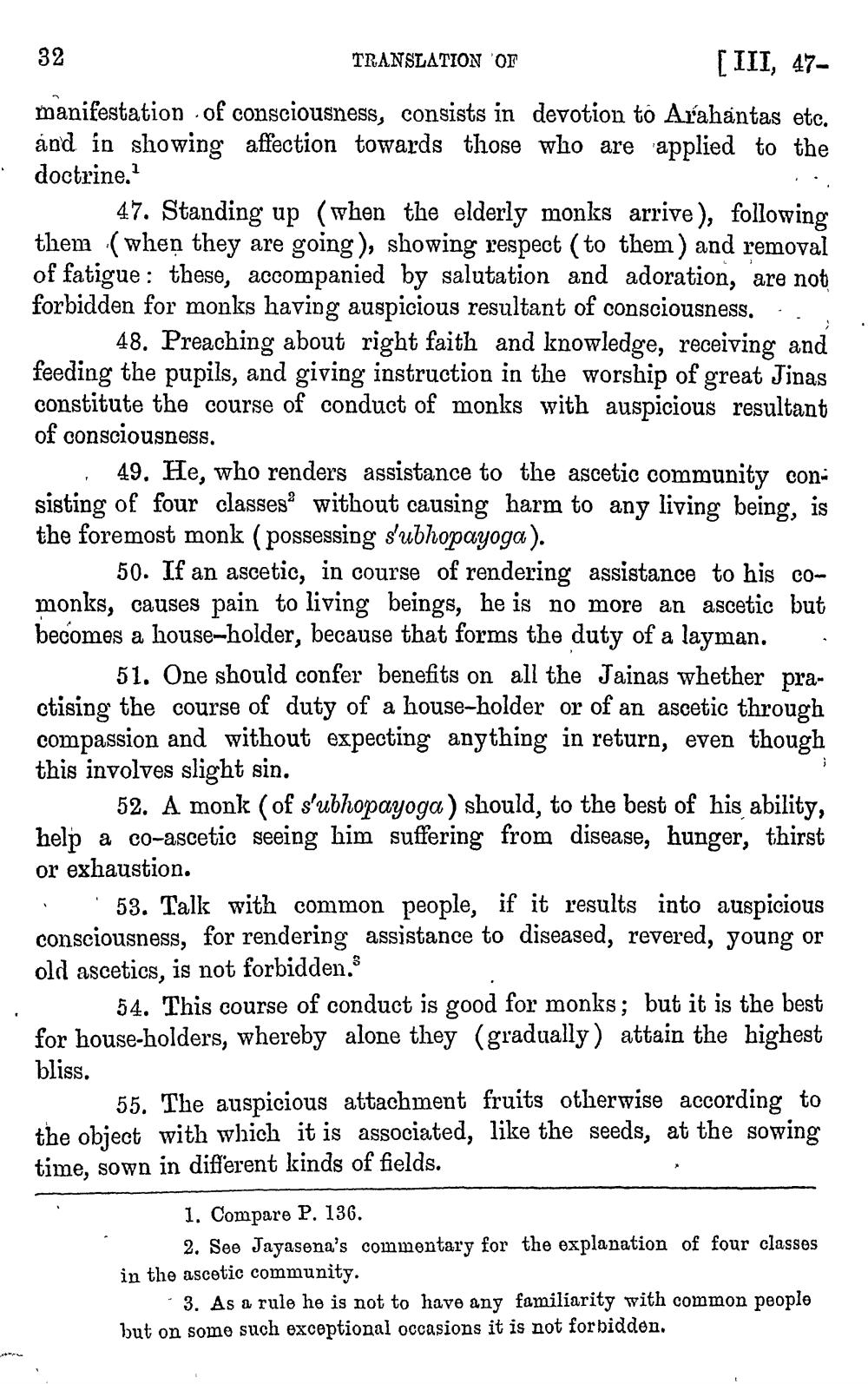________________
*
32
[III, 47
manifestation of consciousness, consists in devotion to Arahantas etc. and in showing affection towards those who are applied to the doctrine.1
TRANSLATION OF
47. Standing up (when the elderly monks arrive), following them (when they are going), showing respect (to them) and removal of fatigue: these, accompanied by salutation and adoration, are not forbidden for monks having auspicious resultant of consciousness.
48. Preaching about right faith and knowledge, receiving and feeding the pupils, and giving instruction in the worship of great Jinas constitute the course of conduct of monks with auspicious resultant of consciousness.
49. He, who renders assistance to the ascetic community consisting of four classes without causing harm to any living being, is the foremost monk (possessing s'ubhopayoga).
50. If an ascetic, in course of rendering assistance to his comonks, causes pain to living beings, he is no more an ascetic but becomes a house-holder, because that forms the duty of a layman.
51. One should confer benefits on all the Jainas whether practising the course of duty of a house-holder or of an ascetic through compassion and without expecting anything in return, even though this involves slight sin.
52. A monk (of s'ubhopayoga) should, to the best of his ability, help a co-ascetic seeing him suffering from disease, hunger, thirst or exhaustion.
"
53. Talk with common people, if it results into auspicious consciousness, for rendering assistance to diseased, revered, young or old ascetics, is not forbidden.
;
54. This course of conduct is good for monks; but it is the best for house-holders, whereby alone they (gradually) attain the highest bliss.
55. The auspicious attachment fruits otherwise according to the object with which it is associated, like the seeds, at the sowing time, sown in different kinds of fields.
1. Compare P. 136.
2. See Jayasena's commentary for the explanation of four classes in the ascetic community.
3. As a rule he is not to have any familiarity with common people but on some such exceptional occasions it is not forbidden.




